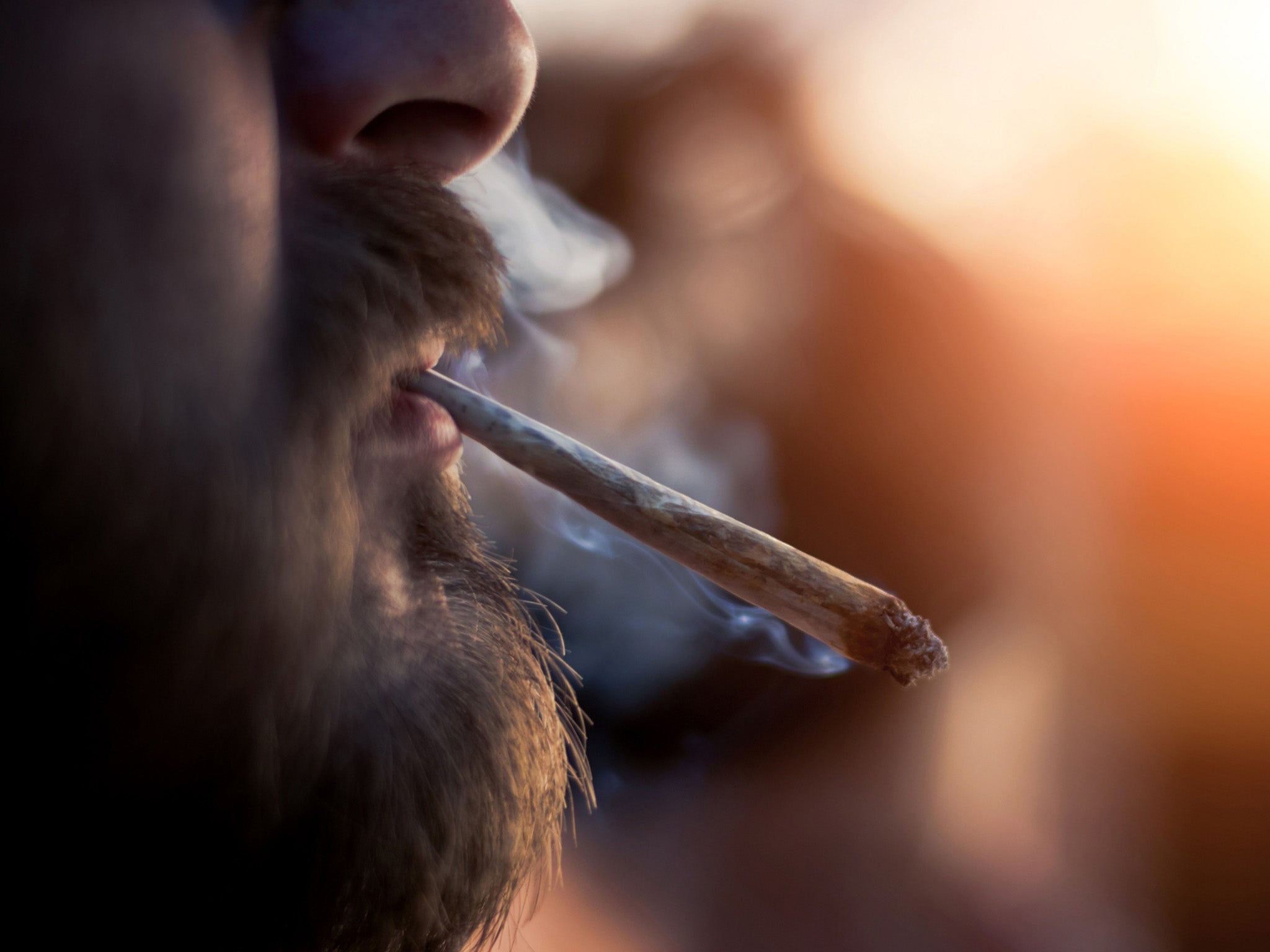The government should proceed with caution when it comes to cannabis
Too many people hold to the easy opinion that an occasional puff on a spliff is harmless and no business of the government

New research has reopened the question of the harm caused by cannabis. A study in a journal published by the American Medical Association suggests 60,000 cases of depression in the UK could be caused by teenage use of marijuana.
This reinforces The Independent’s unfashionable caution about legalising soft drugs. While we welcomed Sajid Javid’s decision as home secretary to review the law on the medical use of cannabis, we warned about its association with mental illness. We argued that more research is needed before Britain presses ahead with the wider legalisation of the drug.
Today’s study is suggestive rather than conclusive. It finds that smoking cannabis before the age of 18 is associated with an increased risk of depression and suicide in adulthood. It is hard to be sure about cause and effect, however. It may be that teenagers prone to depression are more likely to try cannabis. But that doesn’t explain why there appears to be no link between cannabis exposure and anxiety in adulthood. And the authors cite studies of animals that suggest cannabis may alter brain development.
Hence The Independent’s call for further research. In the past, our doubts about legalising cannabis were prompted by evidence of a possible connection between the use, especially of stronger varieties of cannabis known as skunk, and a small number of cases of serious mental illness, mostly in young men.
On the other hand, there is the argument that cannabis appears to be less harmful than alcohol or opioids. For most users, the most harmful effect of dope is to render them boring. There is some evidence from those states in the US where cannabis has been legalised that higher use is associated, for example, with lower consumption of opioids.
It may be that one of the advantages of legalisation would be that it would be possible for the government to regulate the quality of the drug and to inhibit the availability of higher-strength varieties, if indeed they are more dangerous.
In a way it could be argued that a more effective waging of the “war on drugs” would be to legalise cannabis and to have the state intervene in its production, sale and consumption. This may be, paradoxically, hard for liberals to accept.
Two of the further advantages of legalisation are that it could take organised crime out of the industry and that it could raise significant tax revenue – although we should learn the lessons of the US and Canada on both points. Some states have been better than others at raising revenue, while in Canada there is still a dangerous illegal market running alongside a regulated sector.
We should also keep an eye on the involvement of big business in the legal cannabis sector in North America: will it lead to aggressive advertising or to the creation of a new vested interest with influence over government?
Too many people hold to the easy opinion that an occasional puff on a spliff is harmless and no business of the government. Neither is necessarily true. The relationship between cannabis, mental health and the law is more complicated than that. The British government is right to be cautious about how it proceeds.





Join our commenting forum
Join thought-provoking conversations, follow other Independent readers and see their replies